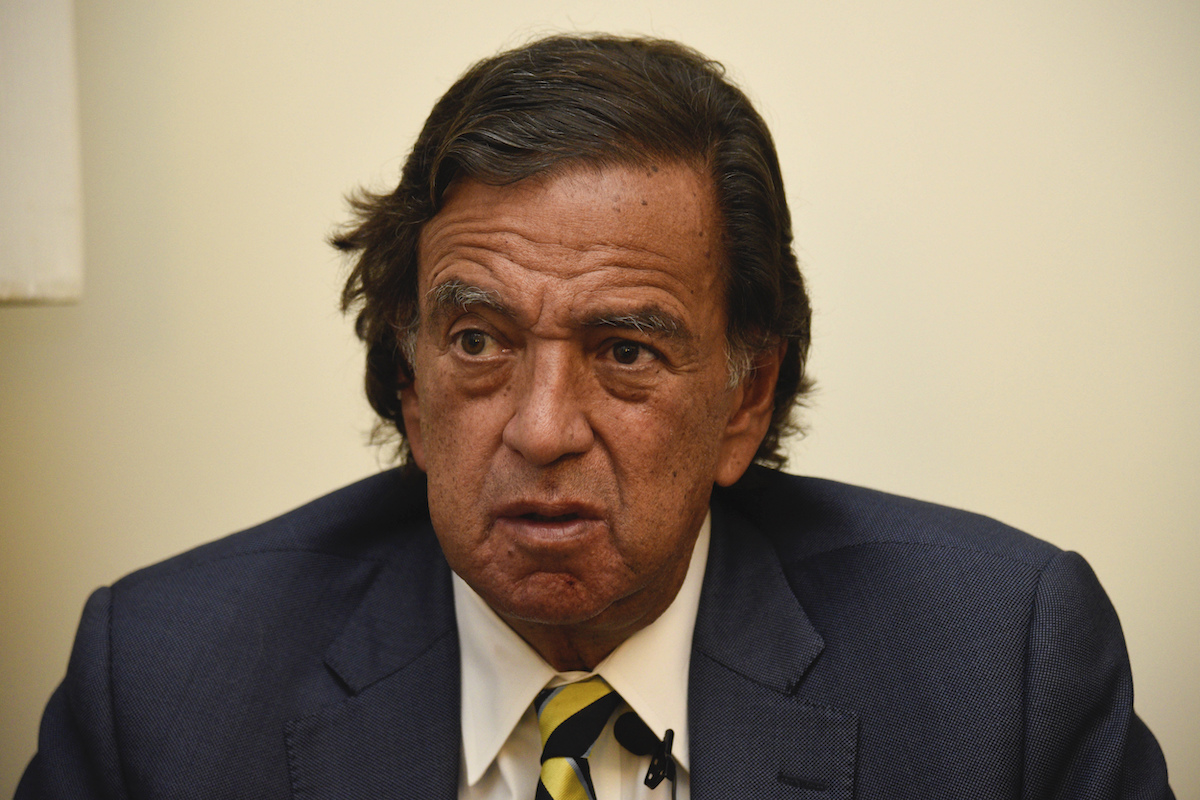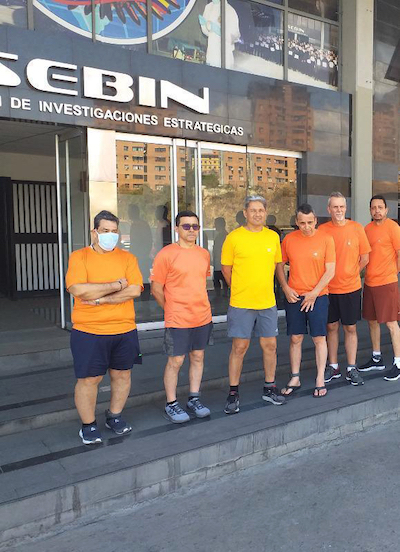

Bill Richardson (AP Photo/Thet Htoo)
By JOSHUA GOODMAN, Associated Press
MIAMI (AP) — Former New Mexico Gov. Bill Richardson plans to travel this week to Venezuela to urge President Nicolás Maduro to free several jailed Americans as a goodwill gesture aimed at easing tensions with the U.S.
The Richardson Center, which seeks freedom for Americans held by hostile foreign governments and criminal organizations, announced Monday the planned meeting with Maduro on social media.
Richardson didn’t say on whose behalf he was traveling to Caracas or what day he would meet with Maduro, who was recently indicted on U.S. drug trafficking charges.
Governor Richardson, at the request of several American prisoners’ families, is traveling to Caracas on a private humanitarian mission to meet with Venezuelan President Nicolás Maduro to discuss the status of the American prisoners and other COVID-19 humanitarian issues.
— Richardson Center (@RichardsonCNTR) July 13, 2020
But among the U.S. citizens jailed in Venezuela are two former Green Berets —Luke Denman and Airan Berry— arrested in May while participating in a botched raid organized from neighboring Colombia to oust Maduro.
Also being held are six oil executives from Citgo —five Venezuelan-Americans and one a permanent U.S. resident— who were lured to Caracas for a meeting in late 2017 at the offices of the Houston-based company’s parent, state-run oil giant PDVSA, when masked security agents swarmed a boardroom and hauled them away.
While Richardson’s visit is a private mission, he coordinated with the State Department and has kept U.S. officials briefed of his plans, according to someone familiar with the trip, on the condition of anonymity to discuss planning details.
The face-to-face diplomacy stands in contrast to U.S. policy of “maximum pressure” on a leader considered by Washington to be a dictator and drug kingpin. The Trump administration closed the U.S. Embassy in Caracas in March 2019 after it recognized Juan Guaidó, the head of the opposition-controlled congress, as Venezuela’s rightful leader.
Lately, however, President Donald Trump has shown signs of losing faith in Guaidó’s ability to remove Maduro, who has shown a surprising degree of resilience amid ever-tougher U.S. sanctions that have accelerated the OPEC nation’s economic collapse.
“He seems to be losing a certain power,” Trump said of Guaidó Friday in an interview with Telemundo. “We want somebody that has the support of the people. I support the person that has the support of the people.”
Richardson, a former U.S. ambassador to the United Nations during the Clinton presidency, has opened diplomatic backchannels to several hostile governments, including Iran, Cuba and North Korea, to win the release of some 40 Americans. They include former U.S. Navy veteran Michael White, who was released last month by Iran after two years in jail as s part of a deal that spared an American-Iranian physician any more time n jail in the U.S.
His relationship with Maduro stretches back to when the Venezuelan would travel to the United Nations as Hugo Chávez’s foreign minister. The two also crossed paths at the 2018 inauguration of Mexican President Andrés Manuel López Obrador. Richardson also worked behind the scenes to bring home another American jailed in Caracas, former Mormon missionary Joshua Holt, who won his freedom in 2018.
Maduro’s government last month released a video showing the six American oil executives in relatively good condition after their loved ones expressed fear about the men’s health amid the coronavirus pandemic.


This undated file photo posted on Twitter on June 18, 2020 by Venezuela’s Foreign Minister Jorge Arreaza, shows Citgo oil executives, from left, José Ángel Pereira, Gustavo Cárdenas, Jorge Toledo, José Luis Zambrano, Tomeu Vadell and Alirio José Zambrano, standing outside the Bolivarian National Intelligence Service, in Caracas, Venezuela. (Posted on Twitter by Jorge Arreaza/Venezuela’s Foreign Ministry via AP, File)
“Given limitations, our conditions here have been good,” one of the men, former Citgo President José Pereira, said between clips of the men dressed in orange jail garb playing ping pong and lifting weights. “They treat us with respect regarding our human rights.”
Less is known about the condition of the former U.S. special forces soldiers. The two appeared in videos shortly after their capture and said they had been hired by a Florida-based company run by a former special forces colleague, Jordan Goudreau, to train a volunteer army of Venezuelans to carry out an assault.
The Trump administration has denied any involvement in the attack, which consisted of a small contingent of lightly armed men who were easily subdued when they arrived to Venezuela’s coastline on a few skiff boats.


